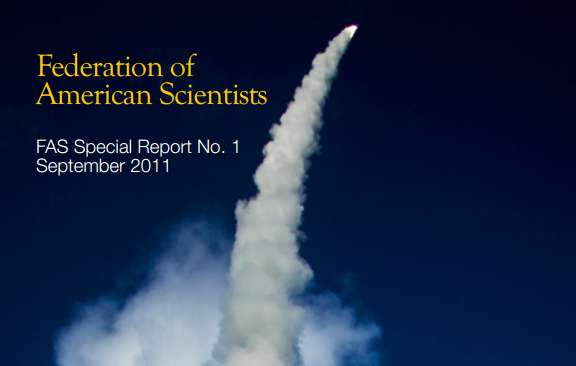
Upsetting the Reset – The Technical Basis of Russian Concern Over NATO Missile Defense
The Obama administration is working with NATO to develop a missile defense shield to protect U.S. and European interests from ballistic missile attacks by Iran. Russian President Dmitry Medvedev has expressed strong concerns over this shield and has warned of a return to Cold War tensions, as well as possible withdrawal from international disarmament agreements like the New Strategic Arms Reduction Treaty (START).
On June 9, the NATO-Russia Council plans to meet with defense ministers to establish cooperation guidelines for the new European antiballistic missile system. The Federation of American Scientists (FAS) is releasing a new report that addresses concerns made by officials of the Russia Federation and provides recommendations for moving forward with a missile defense system..
Dr. Yousaf Butt, Scientific Consultant to FAS, and Dr. Theodore Postol, Professor of Science, Technology and National Security Policy in the Program in Science, Technology, and Society at the Massachusetts Institute of Technology, have published a technical assessment (PDF) of the Phased Adaptive Approach (PAA) missile defense system proposed by NATO and the United States and analyzed whether the Russian Federation has a legitimate concern over the proposed NATO-U.S. missile defense shield.
In practice the PAA will provide little, if any, protection leaving nuclear deterrence fundamentally intact. While the PAA would not significantly affect deterrence, it may be seen by cautious Russian planners to impose some attrition on Russian warheads. While midcourse missile defense would not alter the fundamental deterrence equation with respect to Iran or Russia, it may, in the Russian view, constitute an infringement upon the parity set down in New START.
The last remaining agreement limiting U.S. and Russian nuclear weapons has now expired. For the first time since 1972, there is no treaty-bound cap on strategic nuclear weapons.
The Pentagon’s new report provides additional context and useful perspectives on events in China that took place over the past year.
Successful NC3 modernization must do more than update hardware and software: it must integrate emerging technologies in ways that enhance resilience, ensure meaningful human control, and preserve strategic stability.
The FY2026 National Defense Authorization Act (NDAA) paints a picture of a Congress that is working to both protect and accelerate nuclear modernization programs while simultaneously lacking trust in the Pentagon and the Department of Energy to execute them.